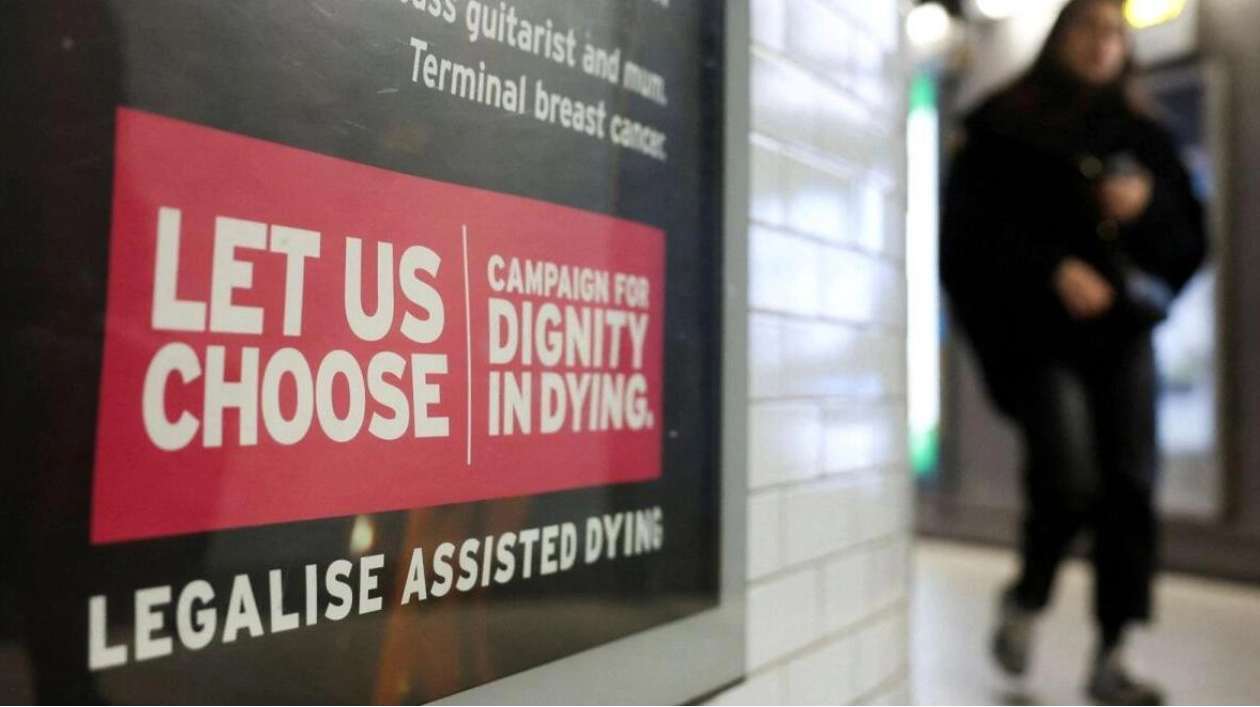A tube passenger passes by a billboard advocating for assisted-dying rights, just before the parliamentary debate in London, Britain, on November 26, 2024. — Reuters
On Friday, British lawmakers will face an emotionally charged decision on whether to support assisted dying, a vote that has deeply divided parliament and the nation. The proposed legislation would grant mentally competent, terminally ill adults in England and Wales, who have six months or less to live, the right to choose medical assistance in ending their lives. This marks the first legislative attempt in a decade, sparking a nationwide debate in Britain, with input from former prime ministers, religious leaders, medical professionals, judges, and ministers within Prime Minister Keir Starmer's administration.
If parliament approves the bill and it successfully navigates the legislative process, Britain would join countries like Australia, Canada, and certain U.S. states in implementing one of the most significant social reforms in recent history. Polls indicate that a majority of Britons support assisted dying, and conversations on the streets of London this week revealed that many people believe those in their final months should have more control over their end-of-life decisions.
However, support within parliament seems less certain, with some lawmakers seeking more details and others needing more time to assess the legal and financial ramifications. Concerns about potential coercion remain, prompting the proposed requirement of two doctors and a High Court judge to verify the decision's voluntariness. Pressuring someone into ending their life could result in up to 14 years in prison.
Lawmakers will be allowed to vote according to their conscience rather than party lines, causing divisions within the governing Labour Party. While Starmer has previously supported assisted dying, he has not disclosed how he will vote on Friday. Labour lawmaker Kim Leadbeater introduced the bill, arguing that legislation must align with public opinion.
If the bill passes, it will move to the next stage of the parliamentary process, with further votes expected in 2025. However, the outcome remains uncertain, as opponents might attempt to extend the debate indefinitely to prevent a vote. Critics argue that the process has been rushed, and some in the judiciary and healthcare sectors question how the process would function, particularly regarding communication between judges and those wishing to die.
For others, enhancing palliative care is the priority. Gordon Macdonald, CEO of the campaign group Care Not Killing, asserts, 'This is all very rushed. There have been many assurances about safeguards... But in every jurisdiction where it has been implemented, the safeguards have been removed or eroded over time.'
Source link: https://www.khaleejtimes.com






